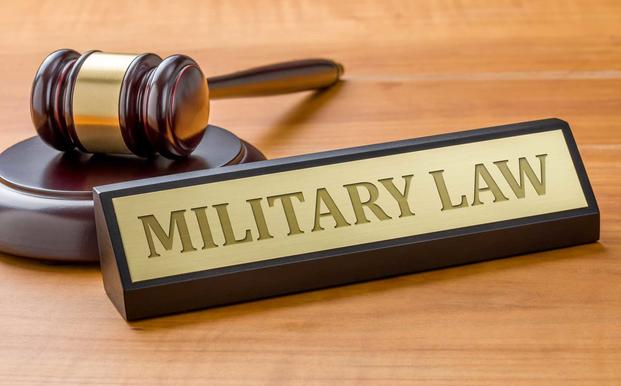If a military member is involved in illegal activity, or breaks the regulations of the Uniform Code of Military Justice (UCMJ) they can be brought to a special military hearing or trial as well as face a civilian trial - depending on the location and the severity of their crime.
Some civilians operating in support of the military during a declared war or contingency operation may also be subject to the UCMJ.
In the military, the service member can face a non-judicial punishment, or a court-martial, depending on the severity of their charges. Officers cannot receive a non-judicial punishment, instead their charges are referred to a court martial.
A non-judicial punishment is reserved for less serious infractions of regulations or the law. It can be held on a ship or a battlefield. Depending on the situation, a commanding officer can convene an NJP in a matter of hours and mete out their punishment rapidly.
Throughout the ages, this type of justice has been necessary to maintain order and discipline in the military environment. Those old World War II movies that show an officer ripping off the stripes of a soldier who nearly got everyone killed? That is the basic premise of an NJP.
Usually, an NJP hearing has a worst-case outcome of a one-paygrade demotion, losing a months pay and receiving 45 days of restriction to quarters. Service members who receive multiple NJPs are often processed for separation.
A court martial is reserved for more serious crimes, or repeated pattern of misconduct. It is similar to a civilian trial in that there is a judge and jury. There are three types of courts martial:
- Summary;
- Special;
- General.
A court martial can hand out any sentence, including the death penalty.
Details about military courts martial.
Know All Your Legal Rights and Benefits
Be aware and get what you are entitled to. Keep up with all the legal benefits available to you as a service member, veteran or spouse and get updates delivered straight to your inbox by subscribing to Military.com.












